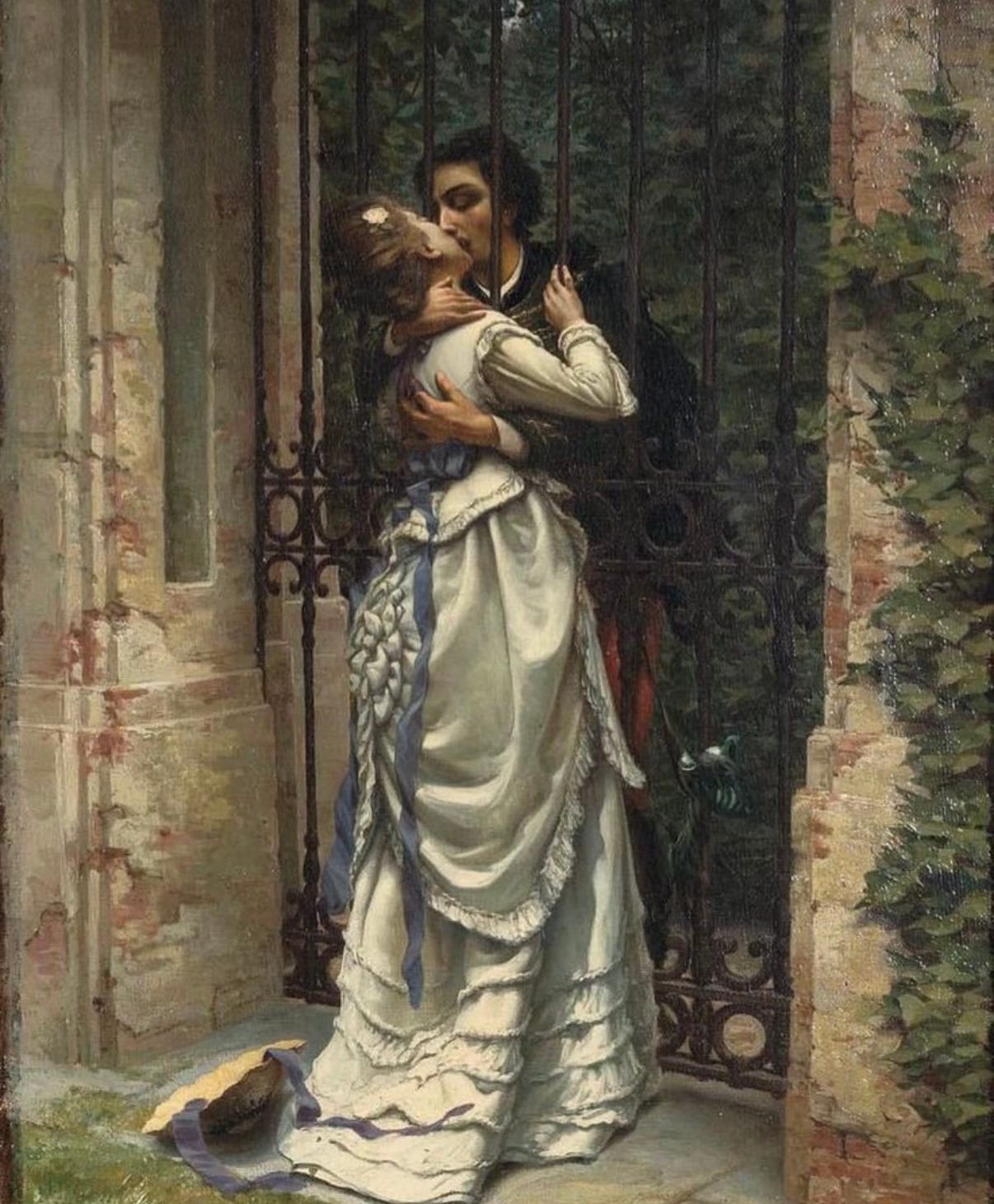Love Without Evidence
On loving without metrics, merit, or mutuality in a culture that needs proof

Loving you was my decision, not your achievement.
There is a particular kind of heresy no one knows how to prosecute anymore – the act of loving without evidence. Not just in the absence of proof, but in full defiance of it. We live inside a forensic culture, one that demands justification for every emotional expenditure. Love, too, must now be itemised, tracked, optimised. We don’t confess it; we present it like a business case. What are the KPIs? What returns can I expect? How does this investment perform over time, especially during periods of emotional volatility? Intimacy has become another speculative market… high risk, potentially high reward, often rigged. We spend hours decoding texts, tallying emotional labour, weighing each gesture against imagined standards of fairness. And in that economy, to love irrationally, to simply love, is to act like someone refusing to believe in gravity. Worse: it’s to insist that maybe falling is the point.
This is not a soft revolt, not the Instagrammable, bath-salt-soaked kind. It’s not the language of affirmation cards or the gospel of “self-love first” passed around like emotional penicillin. No, the love I’m talking about is violent in its tenderness, reckless in its endurance, and wholly uninterested in your approval. It loves in spite of being told it shouldn’t. It stays after being asked to leave. It sends a message not because it hopes to be answered, but because silence is too sterile a fate. This love is not meek or martyred – it’s mutinous. In our world that demands relationships operate like mutual benefit corporations, this kind of love is a disruptive force: unscalable, unsellable, and unstrategic. It loves not because the beloved is impressive, but because the lover refuses to be emotionally bureaucratic.
I’ve done it. A couple of times. Loved people who did not want my love, or worse, wanted it only on their terms – when it was flattering, convenient, consumable. A man who once told me I reminded him of something “ancient and inconvenient”. Another who said, “I don’t know what to do with someone like you”. (He later married someone whose entire personality could be captioned.) I loved them anyway – not because I couldn’t help it, but because I chose not to stop. Which is a different thing. It wasn’t about chasing or winning or fixing. It was about honouring the fidelity of my feeling, even if the person on the receiving end didn’t deserve it, or return it, or even understand it. We speak often about the trauma of being unloved, but what about the silent courage of loving anyway?
I don’t mean to romanticise masochism. I’m not glorifying those who contort themselves in order to stay in relationships that grind them into paste. This isn’t an invitation to be a “healer” or a “ride or die” or any other feminised mythos that grooms women especially to be infinitely accommodating. I mean something more subversive: to be a person who chooses to love because that is the orientation of their soul, not because the other is good, or grateful, or reciprocating, but because one refuses to turn love into a transactional algorithm. Because what if I told you that to love is not a response, but an identity? That in a world that now encourages coldness as sophistication, indifference as protection, and withholding as power, to love openly and gratuitously is to live like a heretic among accountants?
Unconditional love has been badly marketed. We have let it be co-opted by bad poetry, bad parenting, and bad psychology. It’s sold as the domain of doormats and saints, when really it’s the realm of the spiritually untamable. When I say “unconditional”, I don’t mean boundaryless. I don’t mean loving someone while letting them walk barefoot across your dignity. I mean refusing to link love to merit. It means understanding love not as currency, but as condition, not something someone earns, but something you give because you want to live in a state of generosity rather than scarcity. In this version, love is not a virtue. It’s a risk. One that threatens the entire economy of modern self-worth, which is largely built on the illusion that only the exceptional deserve to be chosen.
This doesn’t mean staying. Doesn’t mean tolerating abuse, neglect, or mediocrity in perpetuity. I’ve walked away from people I’ve still loved, people who made me smaller, quieter, or unrecognszable to myself. I left not because I stopped loving them, but because I finally remembered I loved myself, too. There’s no contradiction here. Love is not synonymous with access. Love doesn’t obligate presence. You can block someone on every platform and still send them love in your heart every time their memory stings you awake at 2:37 a.m. You can move across oceans and still pray for their peace. You can hold them in the unlit corners of your chest while also refusing to let them ruin your life. That, too, is love. The unspectacular, unreciprocated kind that does not collapse simply because it is inconvenient.

Somewhere between Simone Weil and Beyoncé – between divine attention and performative possession – lives the cultural tension we still haven’t resolved: is love something we give, or something we earn? Is it devotional or delusional? Maybe both. When I was thirty-one, I fell in love with a man who found my devotion excessive. “You feel too much”, he said, sipping a flat white with the detachment of a ghost. I would have cut out my rib for him if he had asked. He didn’t ask. He just let me love him like I was a season passing through. And when it ended, I didn’t feel stupid – I felt clean. Like I had done something pure in a world that rewards withholding. That kind of love doesn’t leave you empty. It leaves you intact.
This is not a pitch for martyrdom. I’m not trying to become the patron saint of unrequited text messages. What I am trying to articulate is the idea that perhaps the greatest dignity is to keep loving even when it’s unreturned, not because it’s noble, but because it’s yours. Because no one else gets to determine how open or closed your heart should be. “Loving you was my decision, not your achievement” means I refuse to let your behaviour dictate my capacity to feel. It is an act of emotional autonomy, not emotional dependency. And if that confuses people, good. Let them stay confused. Love is not a business strategy.
Naturally, this idea will be processed, packaged, and dismissed by the machine. The algorithm doesn’t like ambiguity. There is no monetisable engagement metric for this kind of love. You can’t build a brand around it. Try telling your therapist that you love someone “just because”, and you’ll get redirected to a worksheet. Try saying it at brunch and you’ll be offered a podcast. We are so addicted to rationalising our emotions that we’ve pathologised any feeling that doesn’t come with citations. There’s a disturbing new religion emerging: love as proof-based productivity. We have forgotten how to feel for no reason.
But to love without reason is to be alive. It means you have not yet handed over your nervous system to the logic of cost-benefit analysis. It means you haven’t yet traded your heart for a calculator. It means, paradoxically, you are still sane in a culture that mistakes numbness for maturity. This love doesn’t “make sense”. It doesn’t have boundaries. It doesn’t obey strategy. It breaks things. It heals them. It gets laughed at, and still returns. It is the fool that outlives the king.
We talk about vulnerability like it’s a lifehack. We quote Rumi, post teary-eyed reels about heartbreak, and then ghost the next person who dares to care too much. We have curated a culture of romantic cowardice with good lighting. But real vulnerability isn’t an aesthetic. It’s not a lifestyle brand. It’s saying “I love you” knowing full well you might be met with “thanks”. It’s not a performative risk, it’s an existential one. It’s having the spine to choose love over dignity, sometimes, and knowing the difference. And that means sometimes you will be humiliated. Sometimes it will not be worth it. But that doesn’t mean it wasn’t real.
This is not an argument against having standards. God knows we need them. But let’s stop confusing defensiveness for discernment. Let’s stop confusing withdrawal for wisdom. Somewhere, in this breathless pursuit of “high value” love, we have lost the raw animal chaos of just feeling something without asking permission from our past wounds or our future plans. A child doesn’t earn a mother’s love. A friend doesn’t rack up enough points for loyalty. Sometimes you love because not loving would mean becoming someone you can no longer recognise.
So here is my heresy, my confession, my warning shot and benediction: I will love you without your permission. I will love you before you prove yourself. I will love you and I may still leave. But I will not be edited by your readiness or reshaped by your refusal. I will not wait for you to earn something I am already overflowing with. Love without evidence is not a flaw. It is not a pathology. It is a choice – the only one I know how to make that makes me feel like I am not wasting this life. And maybe I will be called a fool. Maybe I am one. But at least I am not a coward. And that, for me, is enough.
Unreturned, undeterred, undiminished, with a heart unlicensed and unapologetic,
Tamara





This is likely the last thing I will read before heading into the Scottish highlands for a small intimate solstice gathering in a place where the only signaling will be offered by hearts and not phone masts. I go to a space where our underlying foundation is unconditional love for one another. I am incurably mad in that way. Heart as big as a whale..I love this essay. Unconditionally. It is the perfect prayer to begin my journey of immersion with. Bless you Tamara. See you on the other side. 🙏❤️🙏
Love is a biochemical response; it's chemistry. But we don't conceptualize it that way, and to suggest to a random person, for example, that they love their spouse or child due to a chemical reaction in the brain would surely offend them most of the time, even though it's true.
There's clearly a reason for that; maybe an adaptive one. Maybe it's because love can't endure rational calculus because 1) we're not all that capable of it and 2) rational calculation is more likely to leave you terrified and shivering in the corner than motivated, by love or otherwise, to act; to fight back; to endure; and to just enjoy the little moments of connection.
It's therefore absurd to treat relationships as some sort of cost-benefit analysis; to circumvent 200,000 years of instincts to perform something that merely resembles rationality; and to allow metrics both to diminish the incalculable and intangible aspects of human relationships, and to render us shivering in that corner, alone and terrified, because our relationship didn't fill out some random checklist written by someone monetizing cynicism to pay for their third divorce.
Stunning, Tamara. Don't confuse my analysis for engagement-farming or fulfilling some mutually beneficial obligation; I comment because I want to.